 W
WThe cabinet crisis of 1964 in Malawi occurred in August and September 1964 shortly after independence when, after an unresolved confrontation between the Prime Minister, Hastings Banda and the cabinet ministers present on 26 August 1964, three ministers and a parliamentary secretary were dismissed on 7 September. These dismissals were followed by the resignations of three more cabinet ministers and another parliamentary secretary, in sympathy with those dismissed. Initially, this only left the President and one other minister in post, although one of those who had resigned rescinded his resignation within a few hours. The reasons that the ex-ministers put forward for the confrontation and subsequent resignations were the autocratic attitude of Banda, who failed to consult other ministers and kept power in his own hands, his insistence on maintaining diplomatic relations with South Africa and Portugal and a number of domestic austerity measures. It is unclear whether the former ministers intended to remove Banda entirely, to reduce his role to that of a non-executive figurehead or simply to force him to recognise collective cabinet responsibility. Banda seized the initiative, firstly, by dismissing some of the dissidents rather than negotiating, and secondly, by holding a debate on a motion of confidence on 8 and 9 September 1964. As the result of the debate was an overwhelming vote of confidence, Banda declined to reinstate any of the ministers or offer them any other posts, despite the urging of the Governor-General to compromise. After some unrest, and clashes between supporters of the ex-ministers and of Banda, most of the former left Malawi in October with their families and leading supporters, for Zambia or Tanzania. One ex-minister, Henry Chipembere went into hiding inside Malawi and, in February 1965 led a small, unsuccessful armed uprising. After its failure, he was able to arrange for his transfer to the USA. Another ex-minister, Yatuta Chisiza, organised an even smaller incursion from Mozambique in 1967, in which he was killed. Several of the former ministers died in exile or, in the case of Orton Chirwa in a Malawian jail, but some survived to return to Malawi after Banda was deposed and to return to public life.
 W
WPeople first began to be interested in Malawi's prehistoric past in the 1920s. Excavations of sites in nearby countries, Tanzania and Zambia, made archaeologists believe that they may find the same type of material culture in Malawi. In the 1920s, a series of lacustrine deposits was found at the northwest end of Lake Malawi. These beds contained fragmentary fossils and were mapped by Dr. F. Dixey. These findings sparked an interest to excavate more locations in Malawi.
 W
WThe Bledisloe Commission, also known as the Rhodesia-Nyasaland Royal Commission, was a Royal Commission, appointed in 1937 and undertaking its enquiries between 1937 and 1939. to examine the possible closer union of the three British territories in Central Africa, Southern Rhodesia, Northern Rhodesia and Nyasaland. These territories were to some degree economically inter-dependent, and it was suggested that an association would promote their rapid development. Its chairman was Lord Bledisloe.
 W
WThe British Central Africa Protectorate (BCA) was a British protectorate proclaimed in 1889 and ratified in 1891 that occupied the same area as present-day Malawi: it was renamed Nyasaland in 1907. British interest in the area arose from visits made by David Livingstone from 1858 onward during his exploration of the Zambezi area. This encouraged missionary activity that started in the 1860s, undertaken by the Universities' Mission to Central Africa, the Church of Scotland and the Free Church of Scotland, and which was followed by a small number of settlers. The Portuguese government attempted to claim much of the area in which the missionaries and settlers operated, but this was disputed by the British government. To forestall a Portuguese expedition claiming effective occupation, a protectorate was proclaimed, first over the south of this area, then over the whole of it in 1889. After negotiations with the Portuguese and German governments on its boundaries, the protectorate was formally ratified by the British government in May 1891.
 W
WThe Chikulamayembe are a dynasty of chiefs established among the Tumbuka people in the Nkhamanga-Henga area of Northern Malawi. The Chikulamayembe originally ruled from around 1805, becoming weaker from the 1830s and losing power by the 1870s and their dynasty was re-established in 1907.
 W
WThe Chilembwe uprising was a rebellion against British colonial rule in Nyasaland which took place in January 1915. It was led by John Chilembwe, an American-educated Baptist minister. Based around his Church in the village of Mbombwe in the south-east of the protectorate, the leaders of the revolt were mainly from an emerging black middle class. They were motivated by grievances against the colonial system including forced labour, racial discrimination, and new demands imposed on the indigenous population following the outbreak of World War I.
 W
WSir Robert Edward Codrington was the colonial Administrator of the two territories ruled by the British South Africa Company (BSAC) which became present-day Zambia. He was Administrator of North-Eastern Rhodesia, based at Fort Jameson, now Chipata, from 11 July 1898 to 24 April 1907, and then of North-Western Rhodesia, based at Livingstone from February 1908 to his death in London on 16 December 1908 from heart disease at age 39. He laid the foundation for the amalgamation of the two territories as Northern Rhodesia four years later.
 W
WThe Federation of Rhodesia and Nyasaland was a colonial federation that consisted of three southern African territories—the self-governing British colony of Southern Rhodesia and the British protectorates of Northern Rhodesia and Nyasaland—between 1953 and 1963.
 W
WMalawi is one of the world's least developed countries and is ranked 170 out of 187 countries according to the 2010 Human Development Index. It has about 16 million people, 53% of whom live under the national poverty line, and 90% of whom live on less than $2 per day. The United Nations Children's Fund (UNICEF) estimated that there are 46,000 severely malnourished children.
 W
WFort Mangochi is a historical ruin located in the mountains nearby the small town of Namwera in Mangochi District, Malawi. Presently a spacious walled-off rock wall, several feet thick and 2-3 meters tall, contains within a number of old buildings constructed of fired brick that were built around 1895.
 W
WThe history of the Jews in Malawi formerly known as Nyasaland, and part of the former Federation of Rhodesia and Nyasaland.
 W
WThe ideas, people and events that contributed to John Chilembwe's motivation and influenced him to undertake the uprising in 1915 were considered by the Commission of Inquiry shortly after the rising was defeated, and have exercised historians of Malawi during much of the period since his death. Whether the dominant ideas were political, social, economic or religious and how these combined is unclear, because Chilembwe did not leave a detailed record of the reasons for his armed revolt. As he was an ordained Baptist minister, much attention has focussed on his religious ideas, whether these were orthodox or related to millennialism, the extent to which such potentially conflicting religious ideas existed, particularly in the period shortly before the rising, and the part that such beliefs played in the decision to revolt and the course of the uprising.
 W
WThe Battle of Lioma was fought between the German Empire and British Empire during the East African Campaign of World War I. Having successfully evaded the Allies since late 1917, the German Schutztruppe under Paul von Lettow-Vorbeck waged a guerilla campaign in Portuguese East Africa, attacking and raiding settlements as well as forts in the search of supplies while inflicting as much damage as possible on the Allies. All the while, the Schutztruppe was chased by the British King's African Rifles, which finally cornered the Germans at the village of Lioma on 30–31 August 1918. Led by George Giffard, the British forces almost managed to encircle and destroy the Schutztruppe, but in the end the Germans broke out and successfully retreated. Although greatly weakened by the fighting at Lioma, the Schutztruppe was thus able to remain active until the end of the war.
 W
WMalawi was a predecessor to the modern-day Republic of Malawi. It existed between 1964 and 1966. When British rule ended in 1964, by the Malawi Independence Act 1964, the Nyasaland Protectorate, formerly a constituent of the Federation of Rhodesia and Nyasaland, became an independent sovereign state. The British monarch was head of state and Malawi shared the sovereign, Queen Elizabeth II, with the other Commonwealth realms. The monarch's constitutional roles were mostly delegated to the Governor-General of Malawi, Sir Glyn Smallwood Jones.
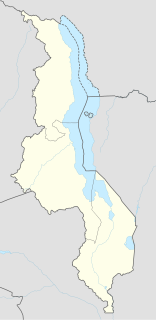 W
WManthimba was the capital of the Maravi Kingdom. It was located at 2 kilometres (1.2 mi) from the present village of Mtakataka in the Dedza district, in the central region of Malawi.
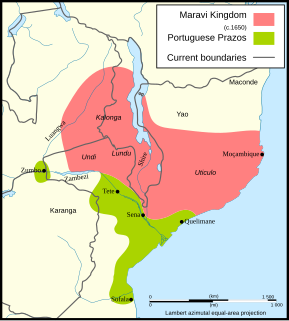 W
WMaravi was a kingdom which straddled the current borders of Malawi, Mozambique, and Zambia, in the 16th century. The present-day name "Maláŵi" is said to derive from the Chewa word "malaŵí", which means "flames".
 W
WThe Monckton Commission, officially the Advisory Commission for the Review of the Constitution of the Federation of Rhodesia and Nyasaland, was set up by the British government under the chairmanship of Walter Monckton, 1st Viscount Monckton of Brenchley, in 1960. Its purpose was to investigate and make proposals for the future of the Federation of Rhodesia and Nyasaland, made up of Southern Rhodesia, Northern Rhodesia and Nyasaland—respectively equivalent to today's Zimbabwe, Zambia and Malawi.
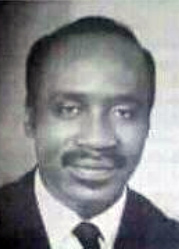 W
WAlbert Andrew Muwalo Gandale Nqumayo was a prominent politician in Malawi from the 1960s until he was sacked in 1976 and was executed in 1977. He entered politics in the mid 1950s through involvement in a hospital worker's trade union and membership of the Nyasaland African Congress, where his activities led to his detention without trial during the 1959 State of Emergency in Nyasaland. After his release, he joined the Malawi Congress Party (MCP), and became locally prominent in Ntcheu District as district MCP chairman and from 1962 as Member of Parliament for Ntcheu South. In 1963, he became Administrative Secretary of the MCP, and he was a prominent supporter of the then-Prime Minister, Hastings Banda during the Cabinet Crisis of 1964. Muwalo was rewarded for his loyalty with the cabinet post of Minister of Information in 1964, and in 1966 he became Minister of State in the President's Office. His close contact with Banda, both as minister in Banda's office and in the MCP gave him great power and, during the first half of the 1970s he and his relative, the Head of the Police Special Branch Focus Gwede, were heavily involved in the political repression of actual or suspected opponents of the Banda regime. In 1976 he and Gwede were arrested: the reasons for their arrests were unclear, but may have resulted from a power struggle among those around the ageing president or simply because he became too powerful and may have been seen by Banda as a threat. In 1977, the two were tried before a Traditional Court and after a trial whose fairness was in serious doubt, were both sentenced to death. Gwede was reprieved, but Muwalo was hanged on 3 September 1977.
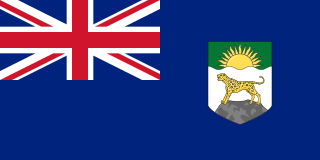 W
WNyasaland was a British protectorate located in Africa that was established in 1907 when the former British Central Africa Protectorate changed its name. Between 1953 and 1963, Nyasaland was part of the Federation of Rhodesia and Nyasaland. After the Federation was dissolved, Nyasaland became independent from Britain on 6 July 1964 and was renamed Malawi.
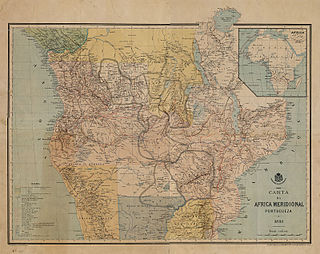 W
WThe Pink Map, also known in English as the Rose-Coloured Map, was a map prepared in 1885 to represent Portugal's claim of sovereignty over a land corridor connecting their colonies of Angola and Mozambique during the Scramble for Africa. The area claimed included most of what is currently Zimbabwe and large parts of modern Zambia and Malawi. In the first half of the 19th century, Portugal fully controlled only a few coastal towns in Angola and Mozambique. It also claimed suzerainty over other almost independent towns and nominally Portuguese subjects in the Zambezi valley, but could rarely enforce its claims; most of the territory now within Angola and Mozambique was entirely independent of Portuguese control. Between 1840 and 1869, Portugal expanded the area it controlled but felt threatened by the activities of other powers.
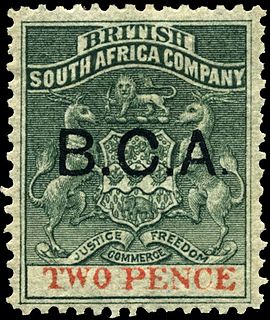 W
WThe British Central Africa Protectorate existed in the area of present-day Malawi between 1891 and 1907.
 W
WThe prime minister of Malawi was the head of government of Malawi from 1964 to 1966.
 W
WMalawi, officially the Republic of Malawi, is a landlocked country in southeastern Africa that was formerly known as Nyasaland. It is bordered by Zambia to the west, Tanzania to the north and northeast, and Mozambique to the east, south and southwest. Malawi spans over 118,484 km2 (45,747 sq mi) and has an estimated population of 18,143,217. Lake Malawi, also known as Lake Nyasa, takes up about a third of Malawi's area. Its capital is Lilongwe, which is also the country's largest city; the second-largest is Blantyre, the third-largest is Mzuzu and the fourth-largest is its former capital Zomba. The name Malawi comes from the Maravi, an old name of the Chewa people who inhabit the area. The country is nicknamed "The Warm Heart of Africa" because of the friendliness of its people.
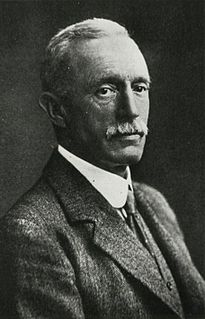 W
WSir Alfred Sharpe was Commissioner and Consul-General for the British Central Africa Protectorate and first Governor of Nyasaland.
 W
WThe Universities' Mission to Central Africa was a missionary society established by members of the Anglican Church within the universities of Oxford, Cambridge, Durham, and Dublin. It was firmly in the Anglo-Catholic tradition of the Church, and the first to devolve authority to a bishop in the field rather than to a home committee. Founded in response to a plea by David Livingstone, the society established the mission stations that grew to be the bishoprics of Zanzibar and Nyasaland, and pioneered the training of black African priests.